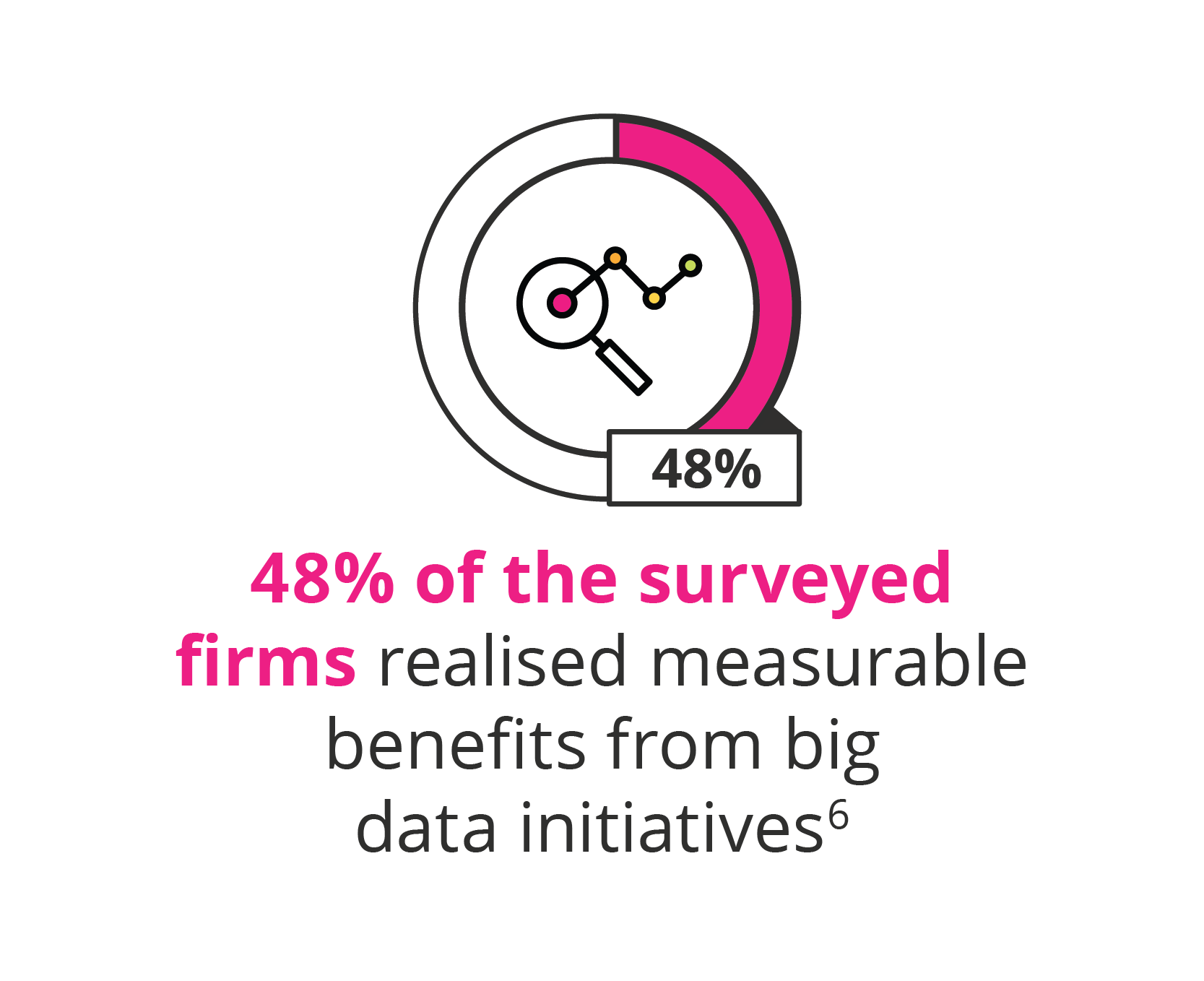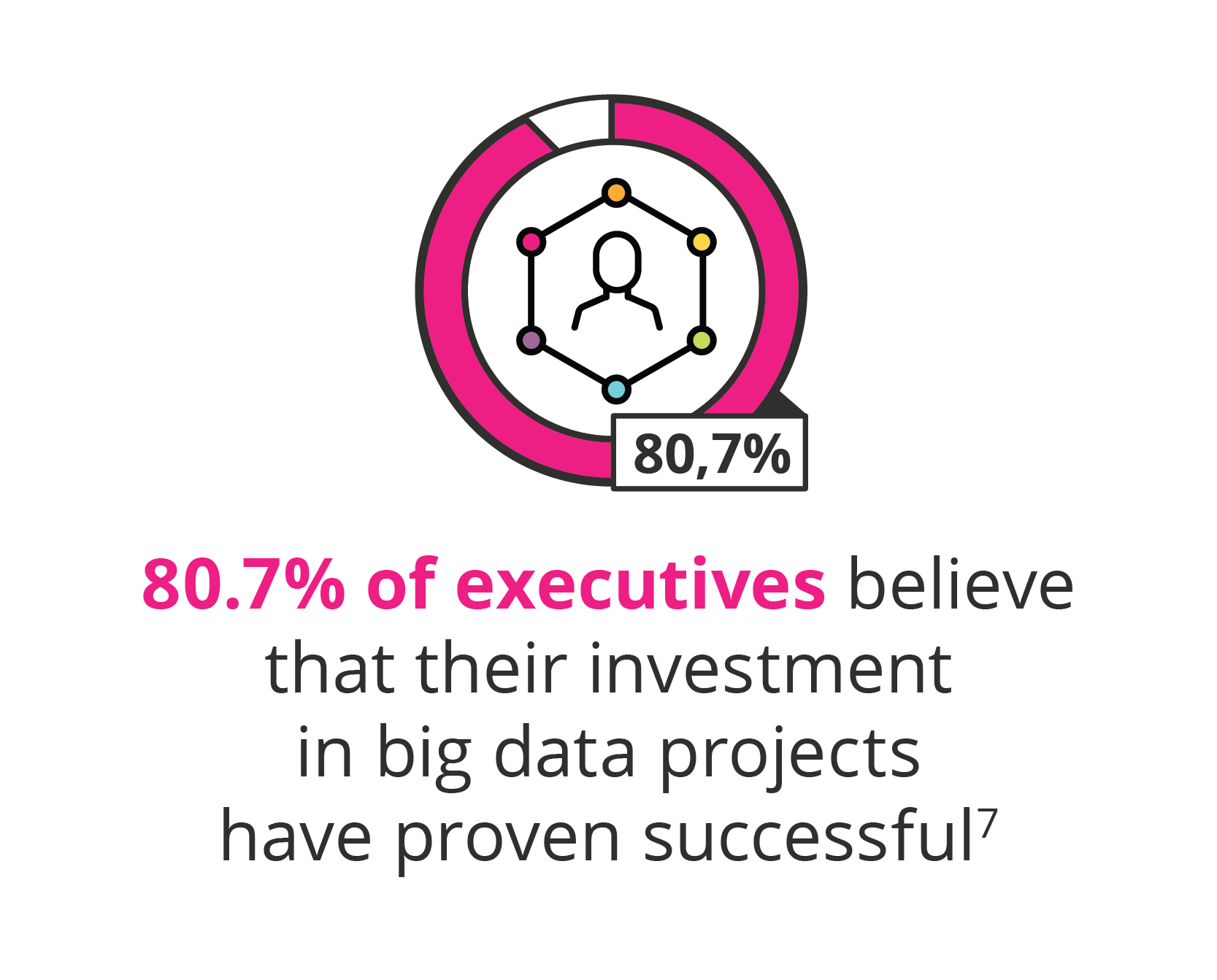How to Improve Your Business Using Analytical Data
The application of data analytics can seem frightening at first.1 Imagine this scenario: Amy was browsing online shoe retailers the night before an important client pitch. The next day, she opens a website to illustrate a point, and the ad stream is peppered with all her favourite shoe shops. She snaps her laptop closed – embarrassed that her personal preferences are being stored for marketing purposes.2
Leveraging big data to improve business opportunities is not a new concept. When you look back at Google’s roots, their PageRank algorithm was a major success that allowed them to position themselves as the most user-friendly search engine available.3 The PageRank function presents the best results to the user by organising an inordinate amount of content. This simple concept tapped into big data, and it was the beginning of a corporate empire that would keep building on a winning formula.
According to senior partners at McKinsey, “In an increasingly customer-centric world, the ability to capture and use customer insights to shape products, solutions, and the buying experience as a whole is critical.”4 As the number of people who create data keeps increasing, so does the value of their collective data.
The Google of today has reached new levels of sophistication: it uses data to teach artificial intelligence (AI) models how to translate many languages, and builds personality profiles of potential customers.5 The more data, the more the AI learns.
Fortunately, most leading companies have been quick to incorporate big data analytics into their business models. NewVantage Partner’s latest Big Data Executive Survey offers insights into 50 Fortune 1000 companies:



As a result of the growing demand for big data insights, these data analyst professionals are in short supply, and the gap is widening.14 There is an urgent need for professionals to upskill and adapt existing analytical skills to meet a growing demand. Coding expert and educator Laurence Bradford explains that while data specialists are an essential business asset, data touches many different roles in a business. “Data isn’t used in a vacuum, [so all] employees need the literacy to handle it effectively.”15 Companies can assist by creating data literacy programmes and by providing continuous development for employees to remain relevant in a world increasingly led by data insights.16

- 1 Monbiot, G. (Mar, 2017). ‘Big data’s power is terrifying. This could be good news for democracy’. Retrieved from the Guardian.
- 2 Curran, D. (Mar, 2018). ‘Are you ready? Here is all the data Google and Facebook have on you’ Retrieved from the Guardian.
- 3 Ijaz, J. (Jan, 2018). ‘Google’s big data algorithms shift emphasis to onsite content’. Retrieved from SmartDataCollective.
- 4 Brown, B., et al. (Mar, 2017) ‘Capturing value from your customer data’ Retrieved.
- 5 (May, 2017). ‘Data is giving rise to a new economy’. Retrieved from the Economist.
- 6 Davenport, T & Bean, R. (2017). ‘Big data executive survey 2017’. Retrieved from NewVantage Partners.
- 7 Davenport, T & Bean, R. (2017). ‘Big data executive survey 2017’. Retrieved from NewVantage Partners.
- 8 Markow, W., et al. (2017). ‘The quant crunch: how the demand for data science skills is disrupting the market’. Retrieved from Burning Glass and IBM.
- 9 White, S.K. (May, 2018). ‘What is a data scientist? A key data analytics role and a lucrative career’. Retrieved from Cio.
- 10 Thorpe, R. (Feb, 2018). ‘Blurred lines: data analysts versus data scientist’. Retrieved from Towards Data Science.
- 11 Markow, W., et al. (2017). ‘The quant crunch: how the demand for data science skills is disrupting the market’. Retrieved from Burning Glass and IBM.
- 12 Zetlin, M. (Nov, 2017). ‘What is a chief analytics officer? The exec who turns data into decisions’. Retrieved from Cio.
- 13 Markow, W., et al. (2017). ‘The quant crunch: how the demand for data science skills is disrupting the market’. Retrieved from Burning Glass and IBM.
- 14 Markow, W., et al. (2017). ‘The quant crunch: how the demand for data science skills is disrupting the market’. Retrieved from Burning Glass and IBM.
- 15 Bradford, L. (Oct, 2018). ‘Why all employees need data skills In 2019 (and beyond)’. Retrieved from Forbes.
- 16 Markow, W., et al. (2017). ‘The quant crunch: how the demand for data science skills is disrupting the market’. Retrieved from Burning Glass and IBM.
- 17 Brown, B., et al. (Mar, 2017). ‘Capturing value from your customer data’ Retrieved.
- 18 Kohen, I. (Sep, 2018). ‘Taking a customer-centric approach to maximizing employee productivity’. Retrieved from Forbes.
- 19 Brown, B., et al. (Mar, 2017). ‘Capturing value from your customer data’ Retrieved.
- 20 Marr, B. (Jun, 2017). ‘3 massive big data problems everyone should know about’. Retrieved d from Forbes.
- 21 Jarow, J. (Oct, 2011). ‘The best Steve Jobs quotes from his biography’ Retrieved.
- 22 Seitz, B. (Mar, 2018). ‘How to build a data first culture for digital transformation’. Retrieved from McKinsey & Company.
- 23 Marr, B. (Jun, 2017). ‘3 massive big data problems everyone should know about’. Retrieved from Forbes.
- 24 Bradford, L. (Oct, 2018). ‘Why all employees need data skills In 2019 (and beyond)’. Retrieved from Forbes.